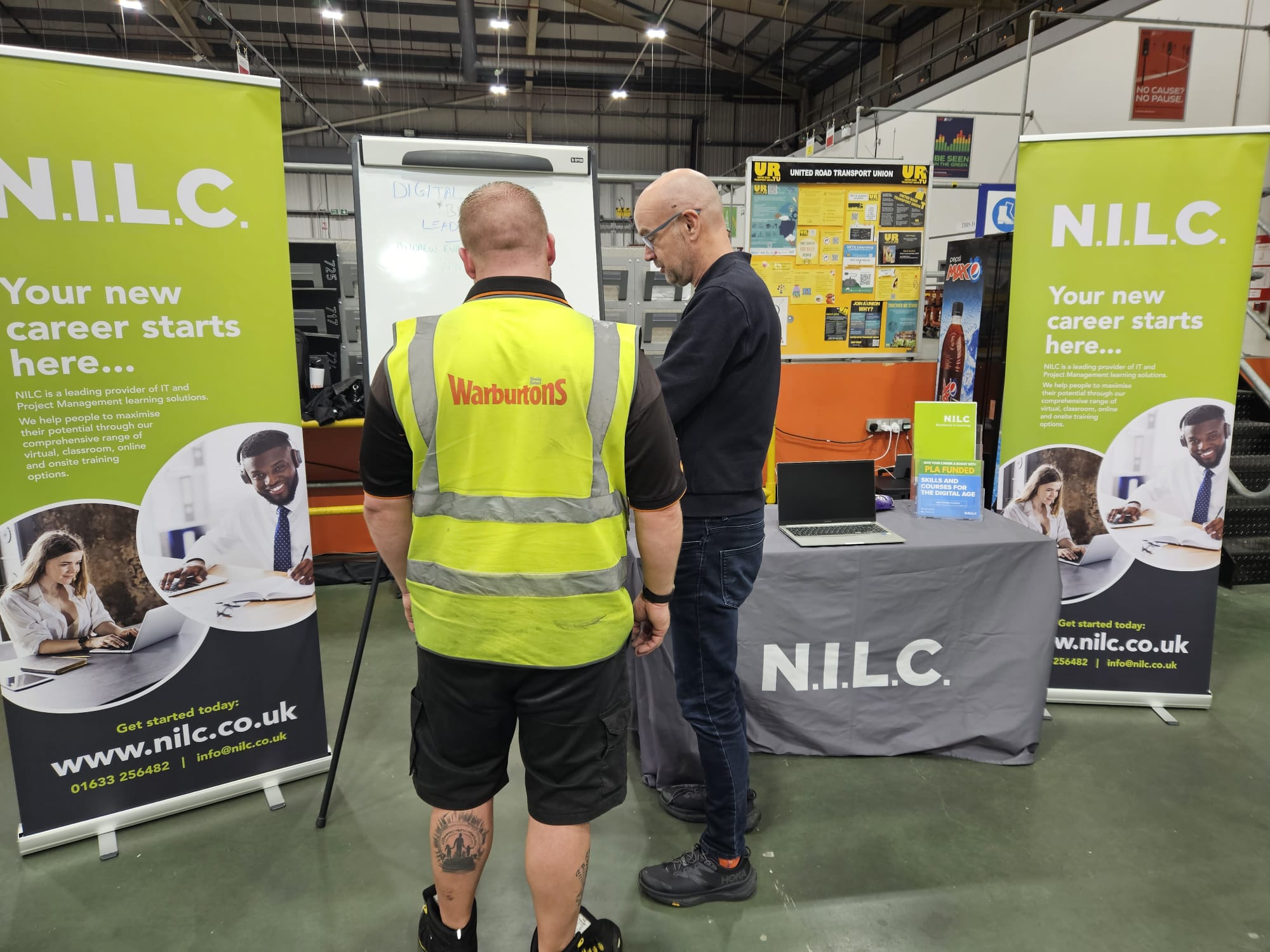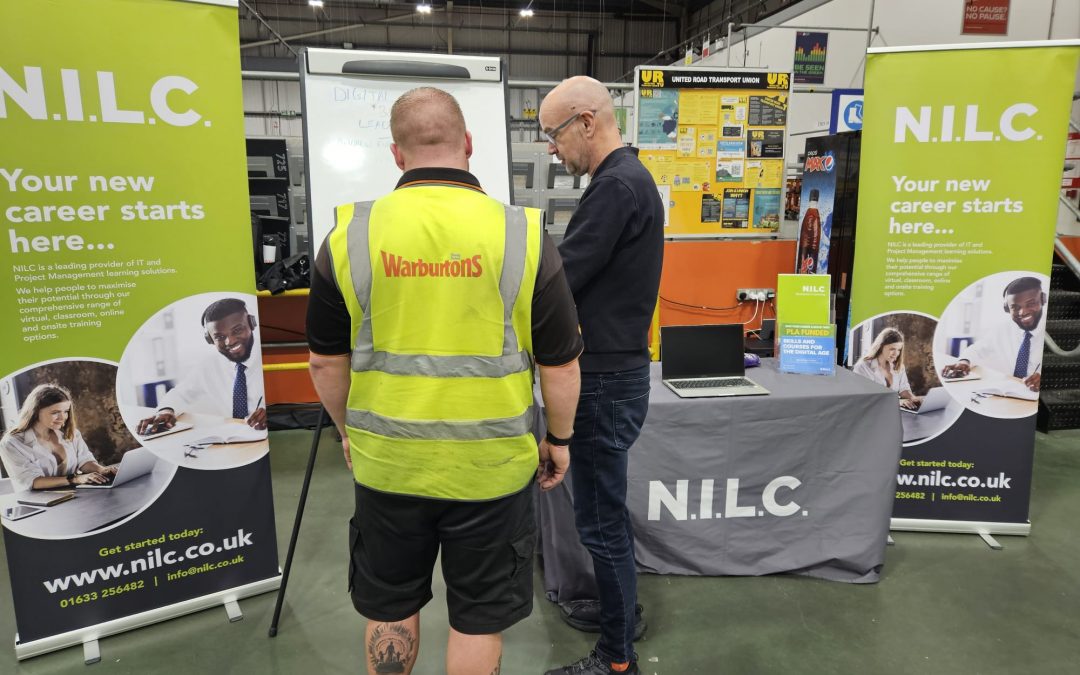Digital transformation is on the rise and affecting every industry imaginable, but millions of people still struggle to use their smartphones for more than making phone calls.
Digital skills can be defined by the skills adults need to safely benefit from, participate in, and contribute to the digital world. By developing better digital skills, we all have a chance to work towards developing digitally confident workplaces, contribute more to our communities, and future-proof our jobs.
Exploring a wide range of opportunities to develop essential digital skills can be achieved by running an awareness-raising event in your workplace. In September 2023 a two-day event was organized at Warburtons in Port Talbot as part of Adult Learners Week. Representatives of WTUC and NILC Training were also invited.
During the event, participants were offered an opportunity to find out more about digital skills training available face-to-face and remotely. An element of interactivity was introduced in the form of “Phone Bingo”, which aimed to test the participants’ digital skills. This was received with positivity and the results of the competition were presented on the leaderboard. At the same time, learners were also encouraged to use their mobile phones to complete online quizzes to test their digital as well as maths skills.
Karim Dastigir from NILC Training commented on the day:
“Although most drivers are competent with the daily use of their mobile, there is still a knowledge gap in other more advanced areas of the mobile devices”.
Helping union members improve their digital skills has been a key part of the URTU WULF project for some time. Another driver who has worked with NILC Training on her digital skills development following a work-based event is Cheryl Dowd. She has been learning how to use Excel, both on a computer and on her mobile phone.
Why would a driver want to learn Excel?
Cheryl said:
“I wanted to improve my money management skills and be able to put financial information on my spreadsheet. Initially, I learnt some basics from the children and on the internet, but then I had a face-to-face session with a tutor who showed me the different formulas and how to add up or multiply figures. I really enjoyed the session as it was tailored to my specific needs. I felt that one-to-one session was better for my confidence because of learning at a later stage in life and not being afraid to ask questions”.
Closing the digital skills gap with help from the union is possible for many by attending both online and face-to-face training. Please discuss your training needs with your workplace Union Learning Rep or contact the project to explore your learning options.


